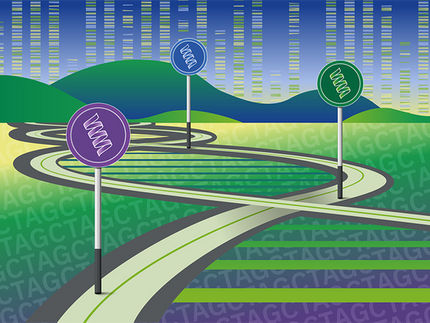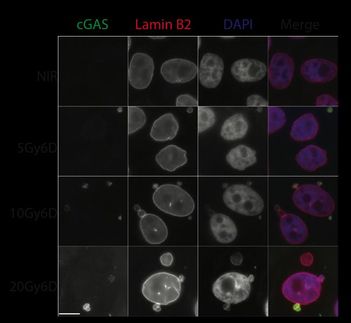Genomics and Proteomics to Increase the Efficiency of Drug Discovery and Development
Advertisement
While the United States is still the world leader, Europe is having a good deal of success in the field of advanced genomics and proteomics research. Significant government funding together with the presence of large pharmaceutical companies has made Europe a major competitor in the efforts to deploy genomics and proteomics as vital tools in drug discovery and development.
Current research activities aim at going beyond the realm of human genome sequencing to expand the list of identified proteins and genes. This, ultimately, is expected to help in improved understanding of disease mechanisms and the development of corresponding therapeutics. However, several issues surrounding drug target identification and validation need to be resolved. For instance, not only is the process extremely time consuming, but lack of standardisation has led to reproducibility issues. Moreover, since genetic variations elicit varied drug responses in different people understanding the impact single nucleotide polymorphisms (SNPs) also becomes complicated.
"These target validation bottlenecks need to be eased with faster, easier-to-use analytical systems, for example, those that can measure biomarkers as surrogate endpoints," says Technical Insights Research Analyst Katherine Austin from Frost & Sullivan. In pharmacogenomics studies, which are used to predict an individual patient's response to a specific drug, researchers need to identify and analyse sequence differences, or polymorphisms and their involvement in drug response. The complexity of the human proteome is also a significant hurdle in terms of resolution and purification of protein mixtures. Sophisticated techniques need to be developed to separate proteins that exist in varied forms corresponding to the functional needs of a cell.
A UK-based initiative using terahertz radiation or T-rays is set to reveal new information about molecular structure and protein interactions through spectroscopy. Emerging technologies such as microarrays, automation and robotics are also taking genomics and proteomics research to new heights.
"Weeks, if not months, were initially required to elucidate the expression of a single gene," observes Dr. Austin. "Now, tens and thousands of genes can be studied in a single afternoon."
Several new computer-modelling approaches such as molecular dynamics (MD), ligand docking (LD), pharmacophore modelling (PM), homology modelling (HM) and enzyme-substrate modelling (ESM) are gaining in popularity. Previously time-consuming and skill-intensive assays and preparations can now be achieved thousands of samples at a time and within a few hours.
Since conventional technologies such as 2D gel electrophoresis pose certain limitations, the development of new technologies such as isotope coded affinity tags, 2D chromatographic separation, terahertz pulsed imaging (TPI) and terahertz pulsed spectroscopy (TPS) and protein arrays are also gaining in prominence.
Apart from drug discovery, proteomics and genomics are making their way into molecular diagnostics. By utilising this technology, researchers hope to treat diseases according to specific genetic markers and select medications and dosages that are optimised for individual patients. SNP-based DNA fingerprinting (a subsector of molecular diagnostics) is already being widely deployed in forensics, wildlife and conservation studies and for establishing paternity. In the future, improved automation, high throughput, scalability and reliability aspects are expected to expand the reach of molecular diagnostics. Molecular test kits that employ pharmacogenomics are set to allow physicians to screen patients for potentially life-threatening reactions and side effects before prescribing a particular drug.
"These developments mark the advent of the age of personalised medicine in which the physician will no longer prescribe a drug on the 'one size fits all' basis and would instead customise it to the patient's individual profile," explains Dr. Austin.
Researchers in Europe have already developed a DNA chip to analyse the effect of genetic variations on the way patients metabolise as many as 25 per cent of all prescription drugs. This chip may also enable pharmaceutical companies to select the appropriate patients for clinical trials. Ultimately, by using a genetic test to include patients most likely to respond favourably to a drug and exclude those prone to negative reactions, a pharmaceutical company could benefit from an accelerated approval process, while reducing the time to market a new drug.
If you are interested in an analysis which provides manufacturers, end users, and other industry participants with an overview, summary, challenges, and latest coverage of Drug Discovery-European Advances in Genomics and Proteomics, then use the contact button below to get an overview e-mailed to you.
Other news from the department business & finance
Most read news
More news from our other portals
See the theme worlds for related content
Topic World Spectroscopy
Investigation with spectroscopy gives us unique insights into the composition and structure of materials. From UV-Vis spectroscopy to infrared and Raman spectroscopy to fluorescence and atomic absorption spectroscopy, spectroscopy offers us a wide range of analytical techniques to precisely characterize substances. Immerse yourself in the fascinating world of spectroscopy!

Topic World Spectroscopy
Investigation with spectroscopy gives us unique insights into the composition and structure of materials. From UV-Vis spectroscopy to infrared and Raman spectroscopy to fluorescence and atomic absorption spectroscopy, spectroscopy offers us a wide range of analytical techniques to precisely characterize substances. Immerse yourself in the fascinating world of spectroscopy!





















































